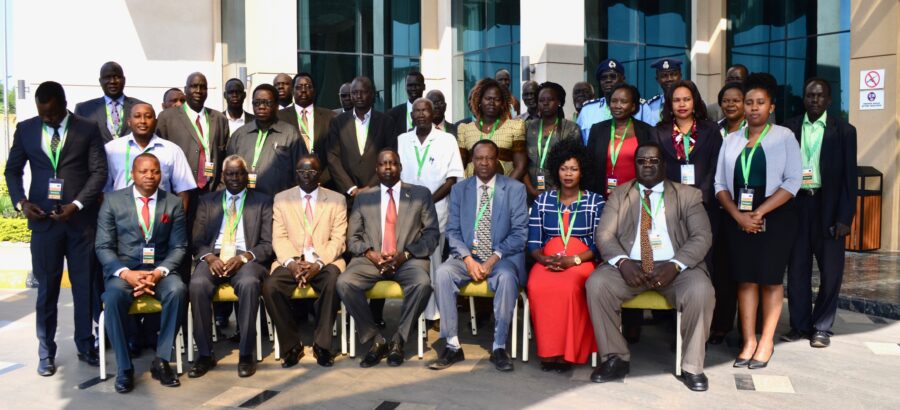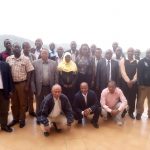The IGAD Centre for Pastoral Areas and Livestock Development (ICPALD) this morning kickstarted a two day national meeting in Juba, South Sudan bringing together legal and policy level experts from the Government of South Sudan to produce final documents for adoption of the IGAD Protocol on Transhumance.
During the opening ceremony, Ambassador David Boum, Director for IGAD and African Union in South Sudan’s Foreign Affairs Ministry mentioned that the IGAD region has a large pastoral community and Member States are set to benefit from this Protocol since their movement into the neighboring countries in search of pasture and water will be safer and legalized.
In support the IGAD expert on Transhumance, Mr. Japheth Kasimbu also mentioned that the IGAD region hosts the largest number of livestock in the world and the member countries of the regional body have so far shown commitment to adopting the Protocol on Transhumance.The legal experts and officials from the South Sudan’s government have expressed that should the Protocol become a reality, it will benefit the pastoral communities across the country.The consultation meeting is bringing together legal experts from South Sudan’s ministries of Foreign Affairs and International Cooperation, Interior, Justice, Livestock and Fisheries and Members of Parliament.
This is the second round of consultations IGAD is conducting in South Sudan after the first round of meeting was conducted in December 2017.
ICPALD is leading the adoption process of the draft IGAD protocol on transhumance that will establish transhumance corridors in the region for the facilitation of cross-border pastoralist movements. The need for the Transhumance Protocol in the IGAD region is premised on the understanding that migration in search of pastures and water is paramount to the very survival of transhumant pastoralist communities.
Efforts to adopt and implement a transhumance protocol in the region is part of a three year program to facilitate free movement regime in the IGAD region. The program is funded by the European Union Emergency Trust Fund (EUTF) and efforts are being geared towards having the Protocol adopted before the end 2018.






